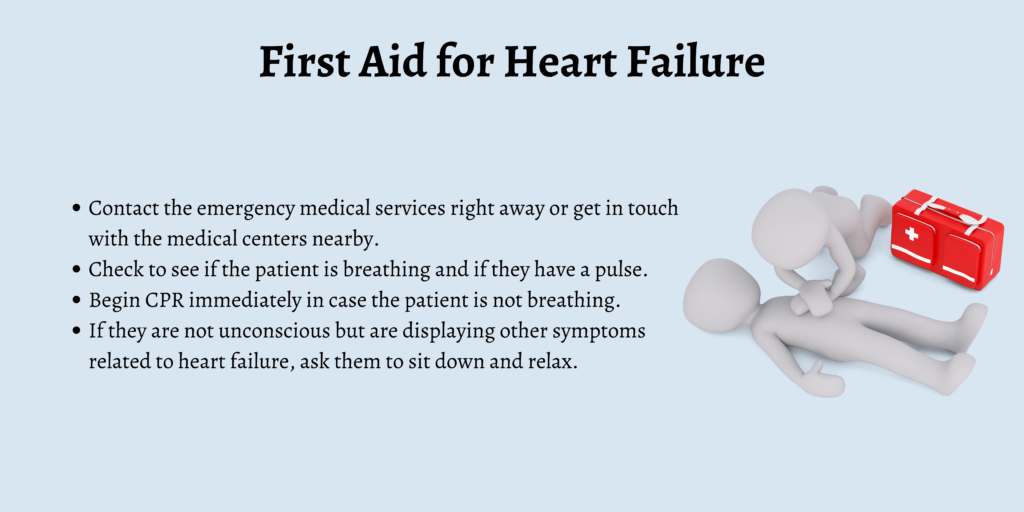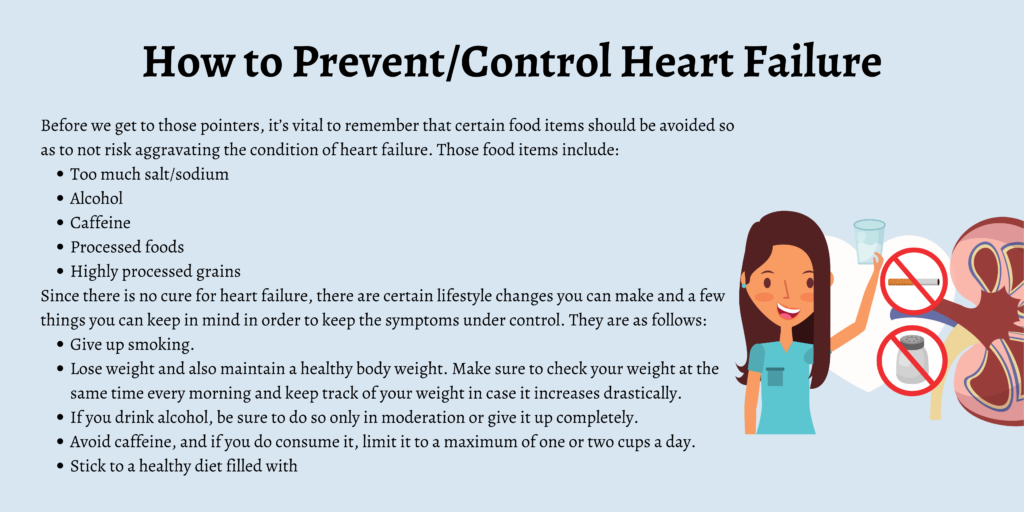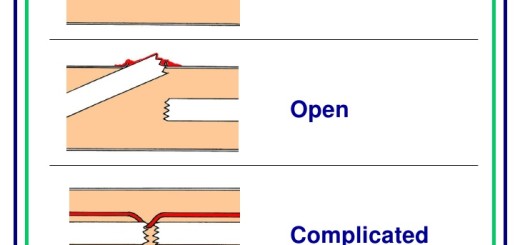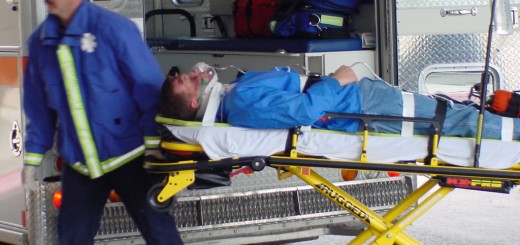First Aid For Heart Failure
Heart failure is a lifelong condition where the patient’s heart can’t pump blood properly to meet all the body’s requirements. Although the heart still functions with this condition, it can’t competently handle the usual amount of blood. Therefore, it gets collected in other areas, such as one’s feet, legs, or lungs.
There are three types of heart failure:
- Left-sided heart failure: Left-sided heart failure is the most common type of heart failure. In this kind, the heart’s left ventricle doesn’t pump enough blood around the patient’s body. It is further divided into two types, namely, systolic failure and diastolic failure.
- Right-sided heart failure: When a person has right-sided heart failure, their heart’s right ventricle is weakened, thereby making it inefficient to pump the required amount of blood to the patient’s lungs.
- Congestive heart failure: In congestive heart failure, there is a backup of the blood returning to the heart through the patient’s veins once the blood flowing out of the heart slows down. This leads to congestion in the tissues of the body.
Although heart failure can occur across people of all ages, it’s most commonly seen among older adults. This long-term condition keeps worsening with time, and even though it can’t be cured, the symptoms can be controlled so that the patient can lead a normal life.
Signs and symptoms of Heart Failure
The signs and symptoms of heart failure can be difficult to differentiate from other causes of breathlessness, but a thorough physical examination and medical history can assist is identifying heart failure. When conducting an assessment of a patient with heart failure ensure to examine:
- the respiratory rate and work of breathing;
- presence of peripheral oedema (patients may sometimes state that their shoes or slippers have felt tighter over the last few days or weeks
- difficulty sleeping or laying flat (patients may state that they have increased the number of pillows they sleep with or have started sleeping in an armchair);
- the presence of any cough, frothy white or pink sputum (yellow, green or brown sputum usually indicates a chest infection);
First Aid For Heart Failure
If you see a person experiencing heart failure, take the following steps:
- Contact the emergency medical services right away or get in touch with the medical centers nearby.
- Check to see if the patient is breathing and if they have a pulse.
- Begin CPR immediately in case the patient is not breathing.
- If they are not unconscious but are displaying other symptoms related to heart failure, ask them to sit down and relax. Make sure their clothing is loosened, and ask them if they consume any medicines for chest pain. If they do, arrange for it and help them have it.
What Not to Do While Assisting Affected Person?
In cases of heart failure, here’s what you shouldn’t do if you witness someone going through it:
- Make sure not to leave the patient alone unless you’re going to call for help.
- Don’t let the person convince you not to contact the emergency medical services by telling you that they aren’t displaying any symptoms.
- Don’t wait around hoping for the symptoms to go away.
- Don’t let the patient have anything by mouth unless it’s a prescribed medicine for the heart that they already have.
When to Contact a Medical Professional
If you think you’re displaying the symptoms associated with heart failure, call the emergency medical services right away. There could be many other causes related to the symptoms, but it’s only wise to let a healthcare provider diagnose them for you.
If you’ve already suffered from heart failure, make sure to reach out to your doctor if:
- There’s the presence of a new symptom.
- Your current symptoms have been getting worse.
- You’ve gained about five pounds or more in the last couple of days.
How to Prevent/Control Heart Failure
As far as living with heart failure is concerned, there are some tips and tricks that make it easier for the patient to stay as healthy as possible.
Before we get to those pointers, it’s vital to remember that certain food items should be avoided so as to not risk aggravating the condition of heart failure. Those food items include:
- Too much salt/sodium
- Alcohol
- Caffeine
- Processed foods
- Highly processed grains
Since there is no cure for heart failure, there are certain lifestyle changes you can make and a few things you can keep in mind in order to keep the symptoms under control. They are as follows:
- Give up smoking. When a person smokes, it increases their blood pressure and heart rate, thereby reducing the circulation of oxygen-rich blood.
- Lose weight and also maintain a healthy body weight. Make sure to check your weight at the same time every morning and keep track of your weight in case it increases drastically.
- Limit the intake of fluids. This is because heart failure causes the body to retain fluids. Consult your doctor regarding this matter.
- If you drink alcohol, be sure to do so only in moderation or give it up completely.
- Avoid caffeine, and if you do consume it, limit it to a maximum of one or two cups a day.
- Stick to a healthy diet filled with
Ø Fruits
Ø Vegetables
Ø Low-fat dairy products
Ø Legumes
Ø Nuts
Ø Whole grains
- Manage your stress levels.
- Monitor your blood pressure levels at home, especially if you suffer from high blood pressure or hypertension.
FAQs
1. Can heart failure happen at any age?
Yes, heart failure can happen at any age.
2. What are the symptoms of heart failure?
The symptoms of heart failure include breathlessness, swollen legs and ankles, and feeling faint or lightheaded.
3. What are the causes of heart failure?
Some of the causes of heart failure include high blood pressure, coronary heart disease, and obesity.
4. Can heart failure be prevented?
Heart failure can be prevented by avoiding tobacco, maintaining healthy body weight, and getting enough exercise.
5. Can heart failure be cured?
No, heart failure can’t be cured, but the symptoms can be controlled by lifestyle changes.
Conclusion
When the right care is provided, heart failure can’t stop a person from leading a normal life. The future of such a patient usually depends on the following:
- Their symptoms
- The condition of their heart muscle
- The efficiency with which they are following the treatment plan and responding to it.
Even if someone has suffered from heart failure, they can go about their daily activities by making the necessary lifestyle changes, keeping track of their symptoms, and religiously scheduling follow-up appointments with their doctor.







